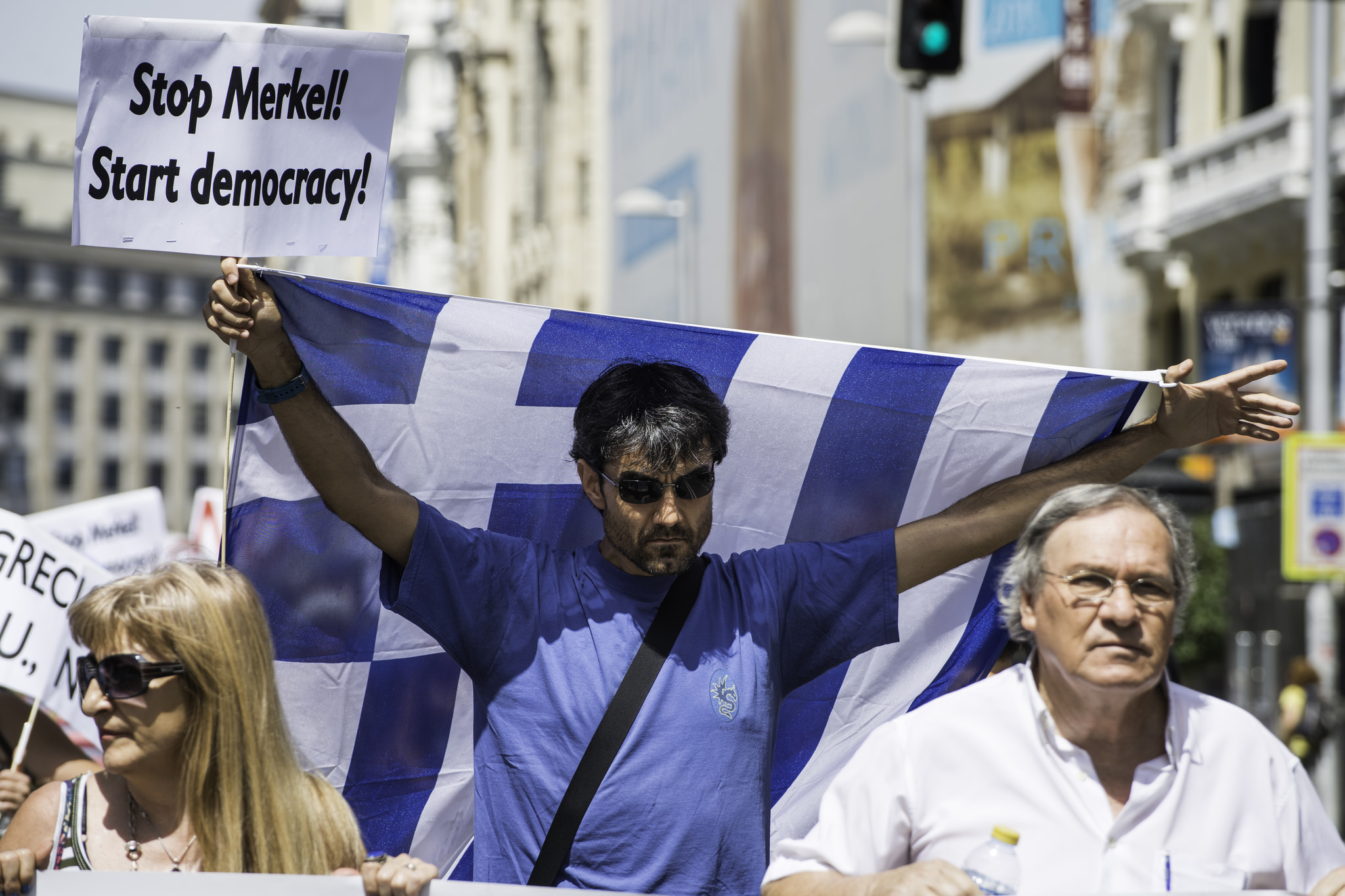David is currently on co-op in Legraina, Greece, at the European Public Law Organization.
On July 5th, the citizens of Greece took to the polls to vote on a national referendum from which the direction of Greece’s debt negotiation with its European creditors would be determined. The choice of a referendum was an unprecedented political move of democratic legitimacy from Prime Minister Alexis Tsipras and Syriza, the ruling party in Greece elected on anti-austerity basis. Tsipras found his negotiations wedged between two different impending storms: the continued damage to Greek society caused by debt-reducing austerity measures that would strangle the already-crippled economy, and the crisis expected to occur if Greece rejected the proposed bailout, potentially leading to Greece’s exit from the Eurozone and a return to the drachma as its primary currency. Neither situation boded well for the future of Greece, yet Tsipras’ move to decide by popular referendum created an environment where whatever storm was to come had the support of the Greek people behind it – a “Choose Your Own Adventure” of political crises.
Former Greek Minister of Finance Yanis Varoufakis referred to the freezing of emergency funds by creditors on the day that the referendum was announced as “terrorism.”[1] In Varoufakis’ eyes, the stoppage of emergency funds by European Central Bank (ECB) was an attempt by German Chancellor Angela Merkel and the ECB to pressure the Greeks into accepting the bailout package with the austerity measures in play. On the ground, it led to closed banks, a frozen stock market, a shortage of funds for pensioners, and long lines in front of ATM machines at risk of running out of cash even while under withdrawal limits of €60 per day. By the day of the referendum, there were essentially no €20 notes left in these machines, effectively limiting withdrawals to €50.[2] The country was strangled financially within a week thanks to these “warning shots” from the ECB.
With more than 60% of the population voting against the austerity measures, democratic ideals won out. Deliberate economic pressure from an international body should not be implemented to sway the outcome of a sovereign democratic referendum within a state. The sovereignty donated by a state when it commits to the Acquis Communautaire (the legal order with which a state must align itself before it joins the European Union) does not extend as far as to manipulate the democratic proceedings of that state.
The precedent set by the referendum has outstanding impact for the future of Europe. Austerity measures have proven ineffective in the past, failing to raise Portugal out of its unemployment crisis of recent years without forcing poverty on the country, as well as severely weakening the Greek economy since the crisis began.[3] The Greek people have recognized that they do not need to be forced into poverty in order to weather this crisis. Austerity has not treated them well in the past, shrinking the economy at such a rapid pace that the state became unable to provide even a fraction of the funds required to repay its debts to the IMF.[4] What is instead required is a responsible restructuring of the debt that will not harm the Greek standard of living and will not derail economic growth in the country for the next century. Finding a responsible solution is not unattainable, but balancing the interests of creditors, international financial institutions, political entities within the European Union, and the weight of the Greek population will be no easy task. With this referendum, the Greek people have stated that a change needs to be made in the approach to the crisis. The Greek people have already suffered immensely from the fallout of the 2008 financial crisis, much more than any other European state has since the crash. It is time to end the punishment of millions of people at the hands of the mistakes of financial and political elites that have long since left power.
References:
[1] Johnston, Chris. “Yanis Varoufakis Accuses Creditors of Terrorism Ahead of Greek Referendum.” The Guardian. Web. 6 July 2015. http://www.theguardian.com/business/2015/jul/04/greece-crisis-varoufakis-accuses-creditors-terrorism-referendum
[2] Brinded, Lianna. “Greek Banks Did Something Sneaky to Limit Cash Withdrawals to 50.” Business Insider, July 6, 2015. Accessed July 10, 2015. http://www.businessinsider.com/greek-atm-limit-now-only-50-not-60-on-capital-controls-2015-6.
[3] The True Cost of Austerity and Inequality. (2013). Oxfam.
[4] Krugman, Paul. “Austerity Arithmetic.” The New York Times, July 5, 2015, Opinion sec. Accessed July 6, 2015. http://krugman.blogs.nytimes.com/2015/07/05/austerity-arithmetic/.



